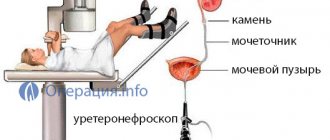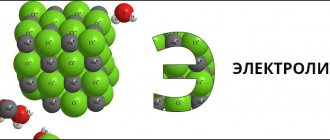ALDOSTERONE
(
Aldosteron
) is a hormone of the adrenal cortex of a steroid nature with mineralocorticoid activity.
Aldosterone was isolated from the adrenal glands in crystalline form in 1953 by an Anglo-Swiss group of researchers led by SA Simpson and JF Tait. Aldosterone is a derivative of corticosterone, in which at position 18 there is an aldehyde group (4-Pregnen-18-al-11,21-diol-3,20-dion) instead of a methyl group. In solution, Aldosterone transforms into the 11,18 cyclic hemiacetal (Fig. 1). Rice. 1. Structural formula of aldosterone and its transition to hemiacetal Fig. 2. Scheme of aldosterone biogenesis from corticosterone
general characteristics
Aldosterone is the main mineralocorticoid hormone of the adrenal cortex, a regulator of water-salt homeostasis. It is synthesized from cholesterol in the cells of the zona glomerulosa of the adrenal cortex. Under its influence, sodium retention occurs in the body (prevailing over water retention) and the release of potassium and hydrogen ions. The main regulators of aldosterone secretion are the renin-angiotensin system, which is activated in response to fluctuations in blood volume, as well as the level of potassium in the blood. Hyperkalemia stimulates and hypokalemia suppresses aldosterone production. In case of hypokalemia, it is necessary to compensate for the potassium deficiency before the study. The content of aldosterone in the blood changes throughout the day (the lowest concentration is around midnight) and depending on the position of the body (increases when moving to a vertical position). Aldosterone levels increase during the luteal phase of the menstrual cycle and during pregnancy. In patients over 60 years of age, aldosterone levels decrease by 50%, which is important to consider when interpreting the results. Increased salt intake leads to a decrease in blood aldosterone levels, while decreased salt intake leads to an increase in its concentration. Aldosterone is metabolized in the liver and kidneys. Also see Aldosterone-Renin ratio.
Aldosterone
Aldosterone
is a hormone produced by the adrenal glands, responsible for the retention of sodium salts and the excretion of potassium by the kidneys. Aldosterone production is partly regulated by pituitary adrenocorticotropic hormone and partly controlled by the kidneys (renin-angiotensin-aldosterone system). It performs an important function in maintaining normal concentrations of sodium and potassium in the blood and in controlling blood volume and pressure.
Biological role of aldosterone
Aldosterone is mostly found in free form in the blood. Its action is manifested only after binding to mineralocorticoid receptors in the brain and liver. Metabolized in the liver and kidneys. It causes an increase in the reabsorption of sodium and chloride in the renal tubules by activating amiloride-sensitive sodium channels and Na-K-ATPase. As a result of this, there is a retention of sodium and chlorine in the body, a decrease in fluid excretion in the urine, and in parallel there is an increase in potassium excretion. Thus, aldosterone is included in the mechanisms regulating electrolyte balance, maintaining fluid volume and blood pressure.
Renin-angiotensin aldosterone system
Aldosterone synthesis is regulated by two proteins, renin and angiotensin. Angiotensin is an aldosterone that is activated when renal blood flow decreases and sodium entry into the renal tubules decreases. Renin is released from the kidneys when blood pressure falls, blood sodium concentration decreases, or blood potassium concentration increases. It breaks down the protein angiotensinogen contained in the blood to form angiotensin I, which is further converted into angiotensin II under the influence of the enzyme. Angiotensin II, in turn, promotes contraction of blood vessels and stimulates the formation of aldosterone. As a result, blood pressure rises and sodium and potassium levels are maintained at the level required by the body.
Increased aldosterone levels
Excess aldosterone causes hypokalemia, metabolic alkalosis, marked sodium retention and increased urinary potassium excretion, which is clinically manifested by arterial hypertension, muscle weakness, convulsions and paresthesias, and cardiac arrhythmia.
The most common cause of increased aldosterone is primary aldosteronism (Cohn syndrome) - an autonomous increase in aldosterone secretion, the cause of which is most often adenoma of the zona glomerulosa of the adrenal cortex (up to 62% of all observations). Secondary hyperaldosteronism, which is the most common type of hyperaldosteronism, is an increase in aldosterone levels caused by an increase in renin activity. Most often, this condition is associated with congestive heart failure, liver cirrhosis with the formation of ascites, certain kidney diseases, excess potassium, low sodium diet, and toxicosis of pregnancy. One important cause is renal artery stenosis, which is responsible for 2–3% of all cases of hypertension.
Hypoaldosteronism is usually accompanied by hyponatremia, hyperkalemia, decreased urinary potassium excretion and increased sodium excretion, metabolic acidosis, and hypotension. The most common cause of this condition is decreased renin production due to kidney damage (hyporeninemic hypoaldosteronism), especially in diabetics. Chronic insufficiency of the adrenal cortex (Addison's disease) due to its primary damage during tuberculosis, autoimmune pathology of the adrenal glands, amyloidosis, etc. is accompanied by a decrease in aldosterone levels and an increase in plasma renin levels.
Under normal conditions, the level of aldosterone in the blood depends mainly on the amount of sodium ingested from food, as well as the position of the body (horizontal or vertical).
Biological variability of aldosterone levels
The level of the hormone is minimal in the morning and in a supine position and maximum in the afternoon and in an upright position. Reduced salt intake leads to an increase in blood aldosterone levels, while increased intake leads to a decrease in its concentration. With age, plasma aldosterone levels decrease.
Many medications can directly or indirectly alter aldosterone production, so if possible, their use should be stopped before the study (approximately 4-5 half-lives of their elimination from the body). If this is not possible, drugs with minimal likely effects on renin and aldosterone are used. Among antihypertensive drugs, centrally acting adrenergic antagonists and peripheral vasodilators are minimally problematic in this regard. Calcium channel blockers affect aldosterone, but less than other agents. Adrenergic antagonists, angiotensin-converting enzyme inhibitors and diuretics (especially spironolactone) have the greatest effect - these drugs should be discontinued before the study, if generally possible. Among other drugs, the correct interpretation of the test may be affected by the use of non-steroidal anti-inflammatory drugs, estrogens, and heparin.
Indications:
- diagnosis of primary hyperaldosteronism, adrenal adenoma and adrenal hyperplasia;
- arterial hypertension that is difficult to control;
- orthostatic hypotension;
- suspected adrenal insufficiency.
Preparation:
Normal salt diet without salt restriction for 2 weeks before the study. During acute illness, aldosterone levels may fall, so testing should not be done during this period.
Before conducting the study, you should exclude stress and intense physical exercise, which can lead to a temporary excess of aldosterone. The attending physician must decide whether to discontinue medications before the study that may affect the study results.
The level of aldosterone in the blood changes depending on the position of the body (vertical - standing and sitting, horizontal - lying). Therefore, before taking blood under standard conditions (sitting), it is advisable to clarify that the client has already been in a vertical position (sitting or standing) for at least 2 hours before taking blood. If it is necessary to take blood in a horizontal position (lying down), it is advisable that the person be in a lying position for at least 2 hours before taking the sample.
It is recommended to donate blood in the morning, between 8 and 11 am. Blood is drawn on an empty stomach, after 6–8 hours of fasting. It is allowed to drink water without gas and sugar. On the eve of the examination, food overload should be avoided.
Interpretation of results
Units of measurement: pg/ml Reference values:
Children:
- 0–6 days: 50–1020 pg/ml;
- 1–3 weeks: 60–1790 pg/ml;
- 1–12 months: 70–990 pg/ml;
- 1–3 years: 70–930 pg/ml;
- 3–11 years: 40–440 pg/ml;
- 11–15 years: 40–310 pg/ml.
Adults (15 years and older):
- vertical position: 25.2–392 pg/ml;
- horizontal position: 17.6–230.2 pg/ml.
Increasing values:
- primary aldosteronism caused by aldosterone-secreting adrenal adenoma (Conn syndrome);
- pseudoprimary aldosteronism (bilateral adrenal hyperplasia);
- secondary aldosteronism with laxative and diuretic abuse, heart failure, liver cirrhosis with the formation of ascites, nephrotic syndrome, idiopathic cyclic edema, Barter's syndrome, hypovolemia caused by bleeding and extravasation, hyperplasia of the juxtaglomerular apparatus of the kidneys with potassium loss and growth retardation, renal hemangiopericytoma producing renin , thermal stress, pregnancy, middle and late luteal phases of the menstrual cycle, after 10 days of fasting, with chronic obstructive pulmonary disease;
- drug interference (angiotensin, estrogens);
- congenital cirrhosis of the liver;
- heart failure;
- bleeding.
Reducing values:
- in the absence of hypertension - Addison's disease, isolated aldosteronism caused by renin deficiency;
- in the presence of hypertension - excessive secretion of deoxycorticosterone, corticosterone or 18-oxydeoxycorticosterone, Turner syndrome (in 25% of cases), diabetes mellitus, acute alcohol intoxication;
- increased consumption of table salt;
- arterial hypertension in pregnant women;
- adrenogenital syndrome.
Patient preparation rules
Standard conditions:
In the morning before 10-00, strictly on an empty stomach, after 8-12 hours of fasting.
3 days before donating blood, eat without salt restriction. Before taking the sample, the patient must be in an upright position (standing, sitting) for at least 2 hours, and then sit at the manipulation table at complete rest for 5 minutes. Important:
Agree with your doctor 2 weeks before the study on taking medications that may affect the results (beta blockers, ACE inhibitors, sartans, diuretics, licorice root products, veroshpiron, oral contraceptives). As directed by the doctor, blood can be drawn after the patient has been in a horizontal position for 1-2 hours. Indicate the use of combined oral contraceptives or hormone replacement therapy.
You can add this study to your cart on this page
Interference:
- Potassium-sparing diuretics, hyperkalemia, angiotensin, estrogens, laxatives with chronic abuse with the development of dehydration, diuretics, metoclopramide, oral contraceptives, thiazide diuretics, salt restriction, pregnancy, renovascular hypertension. Also see Aldosterone-Renin ratio.
- Beta blockers, central alpha 2 mimetics, non-steroidal anti-inflammatory drugs, ACE inhibitors, angiotensin receptor blockers, calcium channel blockers (dihydropyridine group), aminoglutethimide, etomidate, long-term heparin treatment, licorice, deoxycorticosterone, glucocorticoids, hypokalemia, renin inhibitors, excess salt , elderly age
Causes of elevated aldosterone levels
- Psychological stress and anxiety , his nervous system is activated and a sharp release of aldosterone occurs. Adrenocorticotropic hormone (ACTH) is part of the mechanism by which the nervous system increases aldosterone levels. ()
- Increased production of cholecystokinin (CCK), a peptide hormone of the gastrointestinal tract, which leads to an increase in aldosterone levels. () Patients with irritable bowel syndrome to produce too much of the hormone CCK in response to foods rich in fat. () Also, when eating foods with lectin, there is an increase in the production of CCK (in experiments on rats (). In a study on humans, the inclusion of beans in the diet also led to an increase in the production of CCK, which is likely due to the presence of lectins. ()
- Magnesium deficiency (, )
- Zinc deficiency ()
- Low blood pressure (). If you have low blood pressure, the body tries to compensate for this decrease by producing more aldosterone.
- Getting a lot of potassium from food or increased potassium levels due to kidney disease ()
- Increased blood acidity (acidosis) ()
- High histamine levels. This mediator of allergic diseases greatly stimulates the production of aldosterone (in experiments on dogs) ()
- Presence of a tumor producing aldosterone()
- Adrenal adenoma secreting aldosterone is the most common cause
- Adrenal hyperplasia
- Heart failure
- Taking or injecting estrogen, angiotensin
- Heavy bleeding
- Liver cirrhosis with ascites
- High doses of diuretics and laxatives
- Nephrotic syndrome
- Pregnancy
- Thermal stress
- Fasting for more than 10 days
- Chronic obstructive pulmonary disease
INCREASING LEVELS OF ALDOSTERONE AND ITS RECEPTORS LEAD TO INCREASED RISKS OF HYPERTENSION, FIBROSIS AND GENERAL INFLAMMATION ()









